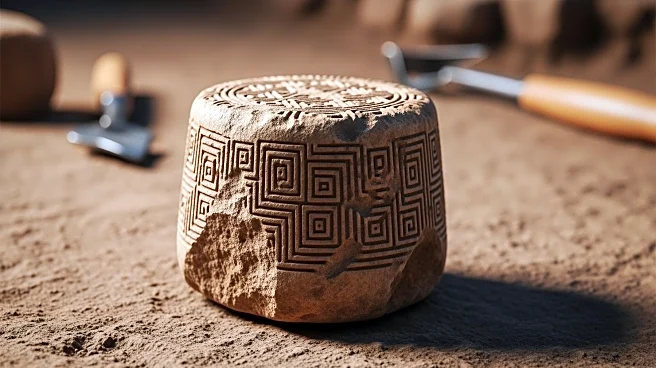What's Happening?
The Chicago Tribune revisits the historical event of the Chicago White Sox losing the best-of-nine World Series to the Cincinnati Reds in 1919. This series is infamous due to the scandal where eight White Sox players were accused of conspiring to throw the series, earning them the nickname 'Black Sox.' Despite being acquitted by a jury, the players were banned for life from organized baseball by Commissioner Kenesaw Mountain Landis. The article also touches on other historical events in Chicago, including the dedication of a memorial to poet Eugene Field and President Barack Obama winning the Nobel Peace Prize.
Why It's Important?
The 1919 World Series scandal remains a significant event in sports history, highlighting issues of integrity and ethics in professional sports. The lifetime ban of the players involved set a precedent for how sports leagues handle allegations of misconduct. This historical reflection serves as a reminder of the importance of maintaining ethical standards in sports and the potential consequences of failing to do so. The broader impact includes ongoing discussions about sportsmanship, fairness, and the role of sports in American culture.
What's Next?
While the events of 1919 are historical, they continue to influence discussions about ethics in sports today. The legacy of the 'Black Sox' scandal may prompt sports organizations to review and strengthen their policies on integrity and conduct. Additionally, the historical reflection may inspire further exploration of other significant events in Chicago's history, contributing to a deeper understanding of the city's cultural and historical landscape.
Beyond the Headlines
The scandal and subsequent bans highlight the complex relationship between sports, ethics, and society. The event serves as a case study in the consequences of unethical behavior and the importance of accountability in professional sports. It also reflects broader societal issues related to trust, fairness, and the impact of sports on cultural identity. The historical narrative may influence how future generations perceive and engage with sports and its role in American society.









